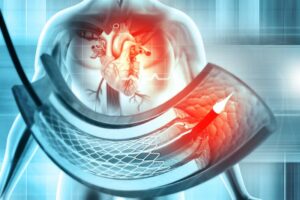Micro Molding Solutions Interventional Cardiovascular Devices

Stent Delivery Systems:
Micro injection molded components are integral to stent delivery systems used in angioplasty and stent placement procedures. These components enable precise deployment of stents within narrow arteries, restoring blood flow and preventing complications.
Balloon Catheters:
Balloon catheters, a cornerstone of cardiovascular intervention, often incorporate micro molded parts. These components facilitate the inflation and deflation of the balloon, allowing for controlled dilation of blood vessels.
Guide Wires and Microcatheters:
Micro injection molding produces guide wire components with exceptional flexibility and pushability. Microcatheters that navigate complex vascular structures also benefit from micro molded parts, ensuring smooth access to target areas.
Vascular Plugs and Occluders:
In procedures like embolization, micro injection molded vascular plugs and occluders help block or redirect blood flow in specific vessels. These components play a crucial role in treating aneurysms and controlling bleeding.
Cannulas and Tubing Connectors:
Micro molded connectors and cannulas are used in extracorporeal circulation systems for heart surgeries. They ensure secure and leak-free connections during cardiopulmonary bypass procedures.
Heart Valve Components:
Components for minimally invasive heart valve repair or replacement procedures are often micro injection molded. These components ensure the proper functioning of prosthetic valves and reduce the invasiveness of the surgery.
Ablation & Mapping Catheters:
Micro molded components are utilized in intracardiac mapping catheters for diagnosing arrhythmias. These catheters provide detailed information on the heart’s electrical activity, guiding treatment decisions.
Microelectrodes for Electrophysiology Catheter Applications:
Micro injection molding produces precise microelectrodes used in electrophysiology studies. These electrodes help identify and treat cardiac rhythm disorders.
Remote-Controlled Devices:
Micro injection molded components are essential in developing remote-controlled devices for minimally invasive procedures. These devices enhance the surgeon’s ability to navigate and manipulate instruments within the cardiovascular system.
In conclusion, micro injection molded components are essential in cardiovascular surgery, enhancing precision, patient outcomes, and minimally invasive procedures. They advance the field, from stent deployment to drug delivery, with ongoing innovations shaping its future.
